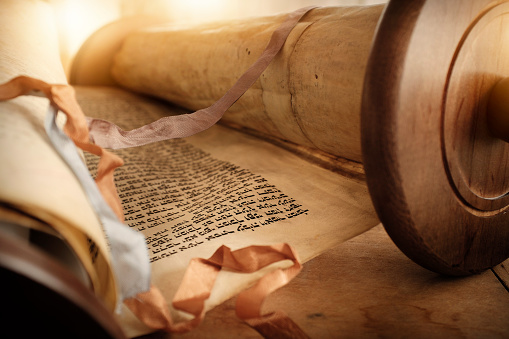Learning objective
- To identify similarities and differences between Jewish and Christian scripture.
Success criteria
- I can identify writings that are shared across
This content is for subscribers only. Join for access today.
Religious Education Council Curriculum Framework for RE in England (non-statutory guidance):
- A1: Describe and
This content is for subscribers only. Join for access today.
Cross-curricular links
History
The National curriculum
This content is for subscribers only. Join for access today.
Before the lesson
This content is for subscribers only. Join for access today.
Lesson plan
Recap and recall
Hand out a whiteboard and pen to each child. Display the Presentation: Quizmaster.
This content is for subscribers only. Join for access today.
Extended-mode explainer videos
How to extend your display to view the lesson page and preseantion mode simultaneously. Choose your operating system below to watch the video
If you need further support with extending your display,
please contact [email protected].
Extended-mode explainer video: For Mac
Extended-mode explainer video: For Windows
Adaptive teaching
Pupils needing extra support
Could use a copy of the Christian Bible to look at when comparing the books in the Tenak and the Bible; should focus on a smaller number of quotes in the Activity: Sort the quotes.
Pupils working at greater depth
Should explain their reasoning for sorting the quotes in the Activity: Sorting the quotes, giving examples from their prior knowledge.
This content is for subscribers only. Join for access today.
Assessing progress and understanding
Pupils with secure understanding indicated by: identifying similarities and differences
This content is for subscribers only. Join for access today.
Vocabulary definitions
-
Christian Bible
Scripture believed by many Christians to be the word of God, made up of the Old and New Testaments.
-
New Testament
Part of the Christian Bible that include the stories about Jesus and his teachings.
This content is for subscribers only. Join for access today.
In this unit
Assessment - R&W Y3: Is scripture central to religion?
Lesson 1: What do some people mean by revelation?
Lesson 2: What's the difference between a scroll and a book?
Lesson 3: How is scripture used by some Muslims?
Lesson 4: How are some scriptures both similar and different?
Lesson 5: What does the Bible mean to some Christians?
Lesson 6: How and why are scriptures central to religion?





